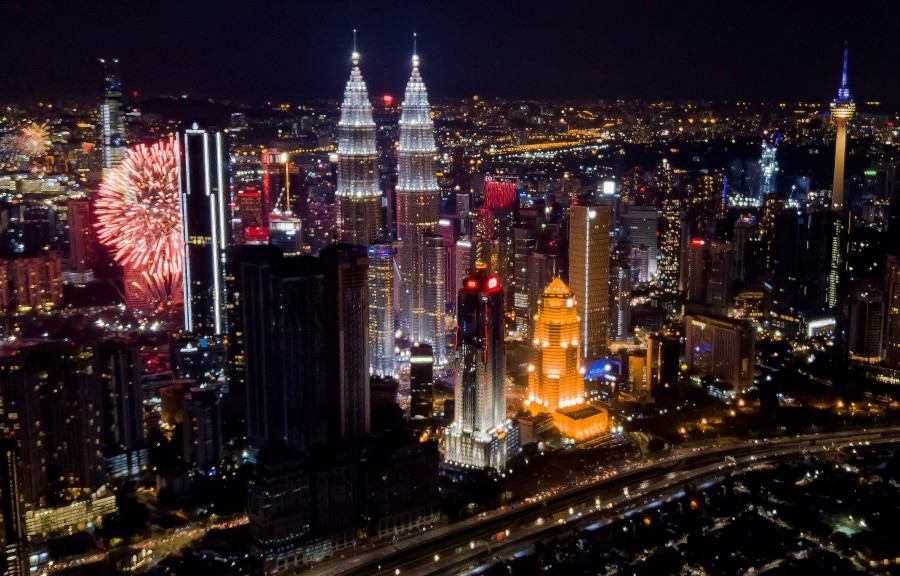It is, once again, August 31. Like clockwork, the public and private sector machinery has been churning out narratives to drive up patriotism among Malaysians.
These efforts culminate on the 31st, where on the perfectly tarred streets of Putrajaya, there was a parade whose participants have been painstakingly curated to reflect the entire spectrum of multiracial Malaysia.
In stark contrast to this picture perfect assemblage, race relations in the country has seen better days.
In response, the Malaysian Communications and Multimedia Commission (MCMC) introduced a WhatsApp hotline for the public to report content containing elements of race, religion or royalty — collectively known as the 3Rs.
This was followed by Religious Affairs Minister Mujahid Rawa’s statement that laws to deal with hate speech should be introduced in the august house “because the rise of hatred between race and religion is now a common issue.”
While there is no denying that something needs to be done, the policies prescribed in these cases are misguided.
On one hand, it is a grave concern to allow the public to police speech online because of how low the bar is set. This bar, according to Section 233(1)(a) of the Communications and Multimedia Act (CMA) 1998, is set at content that causes mere annoyance.
Coupling this low bar together with the new hotline, it is only a natural conclusion that it would result in a society that is more suspicious of one another.
On the other hand, legislations similar to the one recommended by Mujahid Rawa has been introduced in the past with no meaningful impact on improving race relations.
The primary examples of this are the Sedition Act 1948, the CMA 1998, the Anti Fake News Act 2018, and the Constitutional (Amendment) Act 1971 that was passed following the May 13, 1969 riots.
The latter, coming at the expense of weakening the constitutional safeguard to free speech, had empowered Parliament to pass laws to restrict free speech on four matters i.e. (1) citizenship; (2) the national language and the languages of other communities; (3) the special position and privileges of the Malays and natives of the Borneo states and the legitimate interests of other communities; and (4) the rulers’ sovereignty.
The justification then was that once these sensitive matters were not talked about anymore, race relations can improve.
However by considering everything together, it is clear that these policy directions taken over the past 50 years or so to place sensitive matters beyond the pale of public debate has not worked.
The policies, at best, only managed to treat the symptoms but do nothing towards addressing the root causes. In fact, by opting to sweep the problems under the proverbial rug, Malaysia’s society is left unable to confront the questions and challenges that had stemmed from the very birth of the country as a sovereign nation 62 years ago.
This means countless missed opportunities for meaningful dialogue on the hopes, dreams, insecurities, and fears of Malaysians in modern-day Malaysia.
Without these dialogues to identify common grounds, chances are slim for Malaysians to be able to view their interests as a collective — as the sum total of Malaysians — rather than that according to narrow communal lines.
If this were to be attained, then perhaps society would be less responsive to the incentives of race-based politics that seems to be plaguing Malaysia today.
However, in order to have these conversations, the government needs to stop mollycoddling the people. The government should also not dictate in what form or shape these conversations are to take place as it should be a people-driven process, lest we forget that Malaysia belongs to its people and not politicians.
Rather, the government can play a role in creating space conducive for dialogue, and to facilitate discussions.
It goes without saying that these conversations cannot take place when hotlines are set up for individuals to report one another, and with punitive legislations seemingly only waiting to be used against someone who, intentionally or mistakenly, takes it too far.
Neither can these conversations happen if government policy and actions are dictated by groups whose sensitivities seem to need protection from anything and everything.
To allow these groups’ sensitivities to dictate the limits of free speech would mean that free speech extents only as far as their comfort zone. Political calculations, while important, should not be the determinant of this long overdue nation building agenda.
To be sure, addressing these ghosts, some, if not all stemming from the country’s experience with colonialism, will not be an easy task.
Of the nine strategic challenges then Datuk Seri (now Tun) Dr Mahathir Mohamad identified in his Vision 2020 speech, the first, the challenge to establish “Bangsa Malaysia”, is the most fundamental, the most basic, he said in 1991.
As the country fast approaches the end point of this vision turned generational idea, it is disheartening to note how short the country fell.
The road ahead to forming a “Bangsa Malaysia”, or a united Malaysia by any other name, will not be easy.
But that being said, even if these conversations could potentially threaten to stress Malaysia’s social fabric, it must be done to exorcise the ghosts of the past for once and for all.
Because without an honest open conversation between Malaysians, the common ground upon which an imagined Malaysian community is able to be generated will never be found.
This article first appeared in the Malay Mail on August 31, 2019





